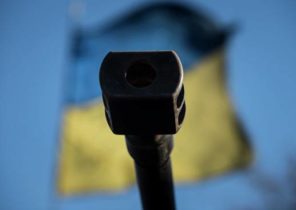CLAREMONT, CALIFORNIA — Britain’s Decision banning Huawei equipment in their networks 5G struck a painful blow to China. Until recently, China still hoped that the UK will stick to its previous decision to allow the Chinese telecommunications giant, to deliver non-core equipment for 5G-networks in the country.
But two recent events have made this decision impossible. The first was the escalation of the US war with Huawei. In may, the U.S. imposed new sanctions prohibiting providers that use American technology, to deliver Huawei semiconductors. Since U.S. technologies are applied in the production of modern semiconductors, which are necessary for the production of Huawei, including base stations for 5G, the company would not ship that would do anything for her production of equipment 5G in the future almost impossible.
The prospect of a key supplier to the British 5G networks will not be able to build and maintain your system much more serious threat than the potential of surveillance from China. No responsible government can afford to take that risk. Huawei’s days were numbered, as soon as the US government pressed by the trigger in may. It remained only to wait for Prime Minister Boris Johnson will report to President XI Jinping’s bad news.
The second event, which from a political point of view made it easier for the Johnson ban the use of Huawei products, the introduction of China’s new national security law in Hong Kong. Draconian legislation proposed in late may, and approved a nominal Parliament of China on June 30, has actually done away with the Autonomous status of the former British colony. From the point of view of Britain, China’s actions are a flagrant violation of the Sino-British joint Declaration of 1984 on Hong Kong, which includes China’s commitment to respect and protect the legal system and civil liberties of this city for 50 years after its return under the jurisdiction of China in 1997.
The Chinese leaders might have thought that Britain was too weak to resist. They obviously made a mistake. The UK has decided to show integrity in respect of Hong Kong and Huawei in this sense — an easy and obvious target.
China may be tempted to strike back, and it seems that he has a lot of leverage. He can push British firms doing business in China. For example, the British banking giant HSBC is even more vulnerable to intimidation because of its operations in Hong Kong bring more than half of its profits and a third of his income. China can also reduce the financial operations conducted through London, and to reduce the number of their students sent to British colleges and universities.
But such responses, as tempting as they may seem, will eventually come back like a boomerang. The expulsion of HSBC from Hong Kong will surely destroy this city as a world financial center because China will not be able to find another global Bank, who would take on this vital role. Given the growing tensions between the US and China, it is difficult to imagine that China would prefer Citi or JPMorgan Chase as successor to HSBC.
Similarly, restrictions on education in the UK, where currently are about 120,000 Chinese, is the greatest harm to China. The fact that good alternatives to sending students not so much. The U.S. is considering the possibility of limiting the number of Chinese students for reasons of national security. China has threatened Australia that will reduce the number of its tourists and students in this country. Opportunities to canadian universities, which now has about 140 000 citizens of China, not unlimited. Since China and Canada involved in diplomatic standoff over the extradition to the USA of the chief financial officer of Huawei Meng Wanzhou, it is unlikely that China will increase the number sent there for training of young urchins.
This is just an illustration of a frightening reality, which is now facing XI Jinping: China is rapidly losing friends just when most in need. Only in the last few months his relationship with India was struck Yong devastating blow after bloody clashes on the border that killed at least 20 Indian soldiers (and an unknown number of Chinese). To punish Australia because she dared to demand an international investigation into the origin, coronavirus COVID-19, China imposed tariffs on Australian barley and threatened other retaliatory measures. On 14 July, the Ministry of foreign Affairs of China in extremely harsh terms condemned the recently released White paper of the Ministry of defense of Japan, which casts doubt on the possibility of rapprochement with Prime Minister Shinzo Abe, which counts XI Jinping.
Chinese leaders have nobody to blame but themselves for the increased international isolation. Because of an exaggerated feeling of their own power, they too often came with a bad card, thereby sending a friendly or neutral countries such as the UK, Canada, India and Australia, straight into the arms of the United States, which is now the main geopolitical enemy of China.
Therefore, the Chinese leaders reflecting on how to respond to the Huawei ban UK, would do well to consider “the first rule of holes”: if you find yourself in a hole, stop digging.







